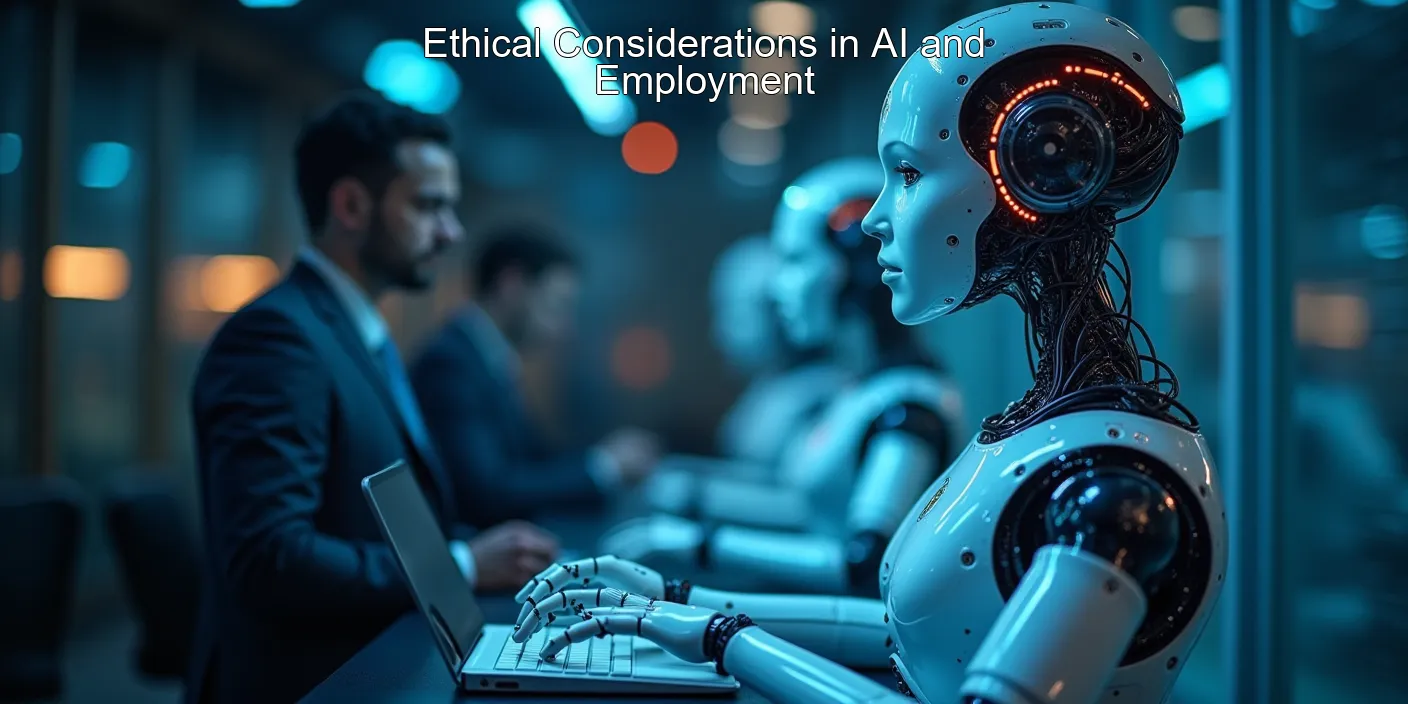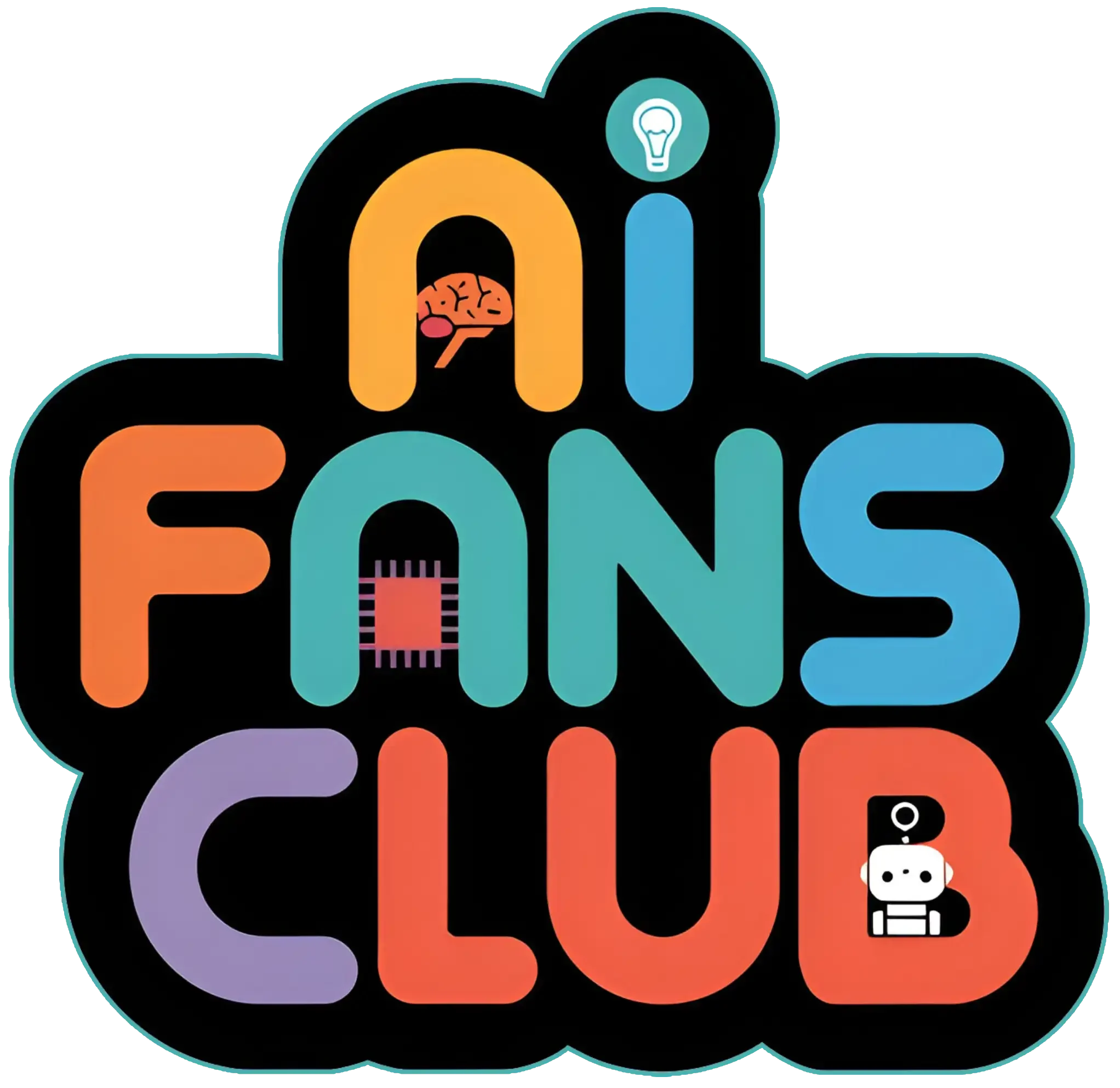Navigating the AI Revolution: Ethical Considerations for Employment and the Job Market
| Key Aspect | Impact |
|---|---|
| Job Displacement | Potential loss of routine jobs |
| New Opportunities | Creation of AI-related roles |
| Skill Requirements | Shift towards tech and soft skills |
As artificial intelligence continues to reshape our world, its impact on employment and the job market raises significant ethical questions. Let’s explore the key considerations:

“AI Ethics: Shaping Jobs and the Future Workforce”
#AIImpact, #JobMarket, #EthicalConsiderations
- Job displacement and economic inequality
- Retraining and upskilling challenges
- Algorithmic bias in hiring processes
- Work-life balance in an AI-augmented workplace
“The real question is not whether AI will replace human workers, but how we can prepare for a future where humans and AI collaborate effectively.” – Erik Brynjolfsson, Director of the Stanford Digital Economy Lab
Frequently Asked Questions
Q: Will AI completely replace human workers?
A: While AI may automate certain tasks, it’s more likely to augment human work rather than fully replace it. Many jobs will evolve to incorporate AI collaboration.
Q: How can we ensure fair AI implementation in hiring?
A: Companies should prioritize transparency in AI-driven hiring processes and regularly audit algorithms for bias to ensure equal opportunities for all candidates.
Q: What skills will be most valuable in an AI-driven job market?
A: Adaptability, critical thinking, emotional intelligence, and creativity will be crucial, alongside technical skills in AI and data analysis.
Ethical Considerations for AI in Employment
- Prioritize transparent communication about AI implementation
- Invest in comprehensive retraining programs for displaced workers
- Develop ethical guidelines for AI use in recruitment and workforce management
- Ensure human oversight in AI-driven decision-making processes
- Address potential socioeconomic disparities caused by AI adoption
According to a World Economic Forum report, while 85 million jobs may be displaced by AI by 2025, 97 million new roles may emerge that are more adapted to the new division of labor between humans and machines.
Balancing Progress and Human Welfare

| Ethical Principle | Implementation Strategy |
|---|---|
| Fairness | Unbiased AI algorithms in hiring |
| Transparency | Clear communication of AI use |
| Accountability | Human oversight of AI decisions |
As we navigate the AI revolution, it’s crucial to balance technological progress with human welfare. This involves addressing the Ethical AI concerns that arise from AI’s impact on employment.
“Balancing Tech Progress, Ethics, and Jobs in the AI Era”
- Ensuring equitable access to AI training and education
- Protecting worker privacy in AI-monitored environments
- Maintaining human-centric values in AI-driven workplaces
- Addressing the potential widening of the global digital divide
“The greatest danger of artificial intelligence is that people conclude too early that they understand it.” – Eliezer Yudkowsky, AI researcher
Q: How can small businesses adapt to AI without disadvantaging their workforce?
A: Small businesses can gradually integrate AI tools, focusing on areas that enhance rather than replace human work, while providing ongoing training to employees.
Q: What role should governments play in managing AI’s impact on employment?
A: Governments should develop policies that encourage responsible AI adoption, fund retraining programs, and ensure social safety nets for those affected by job displacement.
Q: How can we ensure AI doesn’t exacerbate existing inequalities in the job market?
A: It’s crucial to implement diverse and inclusive AI development teams, regularly audit AI systems for bias, and create equal opportunities for AI education and training across all demographics.
Steps Towards Ethical AI Integration in the Workforce
- Conduct thorough impact assessments before implementing AI systems
- Develop company-wide AI ethics policies
- Establish diverse AI ethics boards for oversight
- Implement continuous learning programs for employees
- Collaborate with unions and worker representatives on AI integration strategies
A study by Gartner predicts that by 2024, 69% of routine work currently done by managers will be fully automated, emphasizing the need for a strategic approach to AI adoption in the workplace.
As we embrace the potential of AI Innovations, it’s vital to consider how these technologies will shape AI in Everyday Life, particularly in the realm of work. By addressing ethical concerns proactively, we can harness AI’s power to create a more productive, fair, and fulfilling job market for all.
The future of work is not just about technological advancement, but about creating an environment where AI in Entertainment and all sectors enhances human potential rather than diminishing it. By prioritizing ethical considerations, we can build a future where AI and human workers coexist and thrive together.
Understanding AI’s Influence on Employment

| Key Aspect | Impact |
|---|---|
| Job Displacement | High risk in repetitive tasks |
| New Job Creation | Emerging roles in AI development |
| Skill Requirements | Shift towards tech-savvy workforce |
As artificial intelligence continues to evolve, its impact on the job market raises significant ethical questions. Let’s explore the key considerations:
- Potential job losses in certain sectors
- Creation of new job opportunities
- Changing skill requirements for workers
- Income inequality and wealth distribution
“AI will create 97 million new jobs by 2025, but displace 85 million.” – World Economic Forum
Q: Will AI completely replace human workers?
A: While AI will automate many tasks, it’s unlikely to completely replace humans in most fields. Instead, it will likely lead to job transformation and the need for new skills.
Q: How can workers prepare for an AI-driven job market?
A: Focus on developing skills that complement AI, such as critical thinking, creativity, and emotional intelligence. Continuous learning and adaptability are key.
Q: What ethical responsibilities do companies have when implementing AI?
A: Companies should prioritize responsible AI adoption, including retraining programs for affected workers and transparent communication about AI implementation.
Tips for Navigating the AI-Influenced Job Market
- Stay informed about AI developments in your industry
- Invest in continuous learning and skill development
- Embrace roles that require human creativity and empathy
- Consider careers in AI development and management
According to a McKinsey report, up to 375 million workers (14% of the global workforce) may need to switch occupational categories by 2030 due to AI and automation.
Ethical Implications of AI in the Workplace
| Ethical Concern | Potential Solution |
|---|---|
| Job Displacement | Retraining Programs |
| Algorithmic Bias | Diverse AI Development Teams |
| Privacy Concerns | Strict Data Protection Policies |
The integration of AI in the workplace brings forth several ethical considerations that cannot be ignored. Let’s delve into these crucial aspects:
- Fairness in AI-driven hiring processes
- Transparency in AI decision-making
- Worker privacy and data protection
- Maintaining human dignity in an AI-augmented workplace
“The biggest ethical challenge in AI is ensuring that the technology serves humanity as a whole, not just a privileged few.” – Stuart Russell, AI researcher
Q: How can we ensure AI doesn’t exacerbate existing inequalities?
A: It’s crucial to develop AI systems with diverse teams, regularly audit for bias, and implement policies that promote equal opportunities.
Q: What role should governments play in regulating AI in the job market?
A: Governments should establish guidelines for ethical AI use, support retraining initiatives, and ensure fair labor practices in the AI era.
Q: How can companies balance efficiency gains from AI with ethical responsibilities to workers?
A: Companies should adopt a human-centered approach to AI implementation, focusing on augmenting human capabilities rather than replacing workers entirely.
Best Practices for Ethical AI Implementation in the Workplace
- Conduct thorough impact assessments before AI adoption
- Involve employees in the AI integration process
- Establish clear guidelines for AI use and decision-making
- Provide ongoing training and support for workers adapting to AI
A study by Deloitte found that 82% of early AI adopters reported positive financial returns on their AI investments. However, ethical considerations must remain at the forefront of this technological revolution.
As we navigate the complex landscape of AI in Everyday Life, it’s crucial to consider the broader implications on society. The ethical use of AI in the job market is not just about technological advancement, but about shaping a future that benefits all of humanity.
While AI presents exciting opportunities in AI in Entertainment and other sectors, we must ensure that these AI Innovations are developed and implemented responsibly. The principles of Ethical AI should guide our approach to integrating AI into the workforce, ensuring a balance between technological progress and human welfare.
| Key Aspect | Impact |
|---|---|
| Job Displacement | High in repetitive tasks |
| New Job Creation | Emerging AI-related roles |
| Skill Requirements | Shift towards tech and soft skills |
As artificial intelligence continues to evolve, its impact on the job market is becoming increasingly significant. Here are the key ways AI is reshaping employment:
- Automation of routine tasks
- Creation of new AI-centric job roles
- Demand for upskilling and reskilling
- Changes in workplace dynamics and structures
“AI will create 97 million new jobs by 2025, but it will also displace 85 million jobs.” – World Economic Forum
FAQ: AI and Employment
Q: Will AI completely replace human workers?
A: While AI will automate many tasks, it’s unlikely to completely replace humans. Instead, it will likely lead to job transformation and the creation of new roles.
Q: What skills will be most valuable in an AI-driven job market?
A: Critical thinking, creativity, emotional intelligence, and AI literacy will be highly valued in the future job market.
Q: How can workers prepare for AI’s impact on their careers?
A: Continuous learning, developing adaptability, and focusing on uniquely human skills are key strategies for future-proofing your career.
Preparing for the AI-Driven Job Market
- Stay informed about AI developments in your industry
- Invest in ongoing education and skill development
- Cultivate creativity and problem-solving abilities
- Embrace AI as a tool to enhance your work, not replace it
According to a recent study by McKinsey, up to 375 million workers (14% of the global workforce) may need to switch occupational categories due to AI and automation by 2030.
Ethical Considerations in AI and Employment

| Ethical Issue | Potential Solution |
|---|---|
| Job Displacement | Retraining Programs |
| Algorithmic Bias | Diverse AI Development Teams |
| Privacy Concerns | Strict Data Protection Policies |
As AI reshapes the job market, several ethical considerations come to the forefront:
“AI in the Workplace: Risks, Fairness, Privacy, Transparency, and Regulation”
- Ensuring fair and unbiased AI-driven hiring processes
- Addressing the socioeconomic impact of widespread job displacement
- Maintaining human dignity and purpose in an increasingly automated world
- Protecting worker privacy and data in AI-enhanced workplaces
“The biggest challenge of the 21st century is the irony of technologies of abundance in the hands of those still thinking in terms of scarcity.” – Peter Diamandis
FAQ: Ethical AI in Employment
Q: How can we ensure AI doesn’t perpetuate bias in hiring?
A: Regular audits of AI systems, diverse development teams, and transparency in AI decision-making processes are crucial steps.
Q: What responsibilities do companies have when implementing AI that may displace workers?
A: Companies should invest in retraining programs, provide transition support, and consider the broader societal impact of their AI implementations.
Q: How can we balance the benefits of AI with the need for human employment?
A: Focusing on human-AI collaboration, investing in education, and developing policies that support workers in transition are key strategies.
Promoting Ethical AI in the Workplace
- Develop clear AI ethics guidelines for your organization
- Invest in AI literacy programs for all employees
- Prioritize transparency in AI-driven decision-making processes
- Regularly assess the impact of AI on your workforce and adjust strategies accordingly
A survey by Deloitte found that 82% of early AI adopters believe AI will substantially transform their companies within three years, highlighting the urgency of addressing these ethical considerations.

As we navigate the complex interplay between AI Innovations and employment, it’s crucial to consider the ethical implications. By focusing on Ethical AI practices, we can harness the potential of AI while ensuring a fair and inclusive job market. The integration of AI in Everyday Life is inevitable, but how we manage this transition will define our future. As AI continues to reshape industries, including AI in Entertainment, we must strive for a balance that benefits both technological progress and human welfare.



